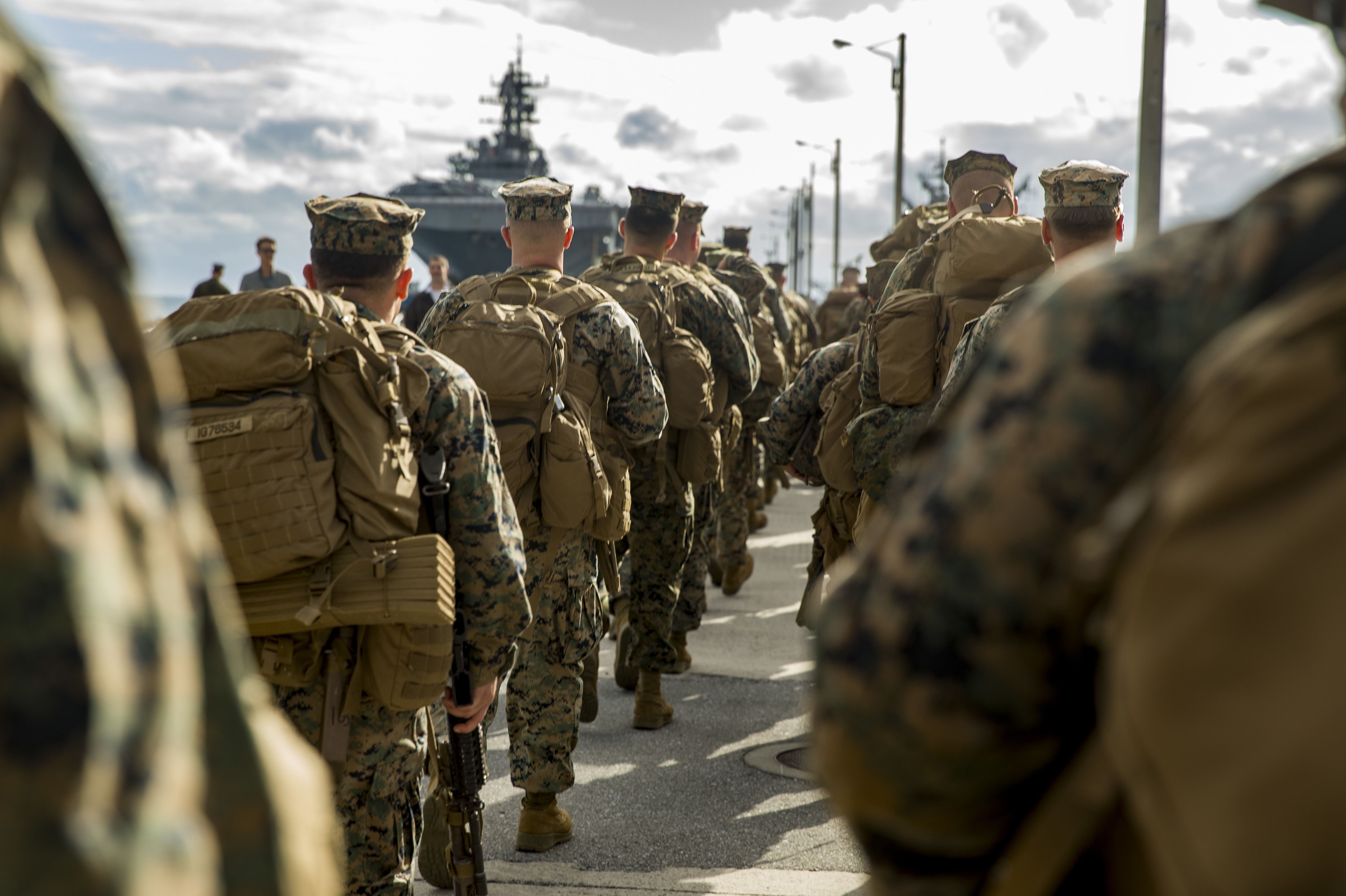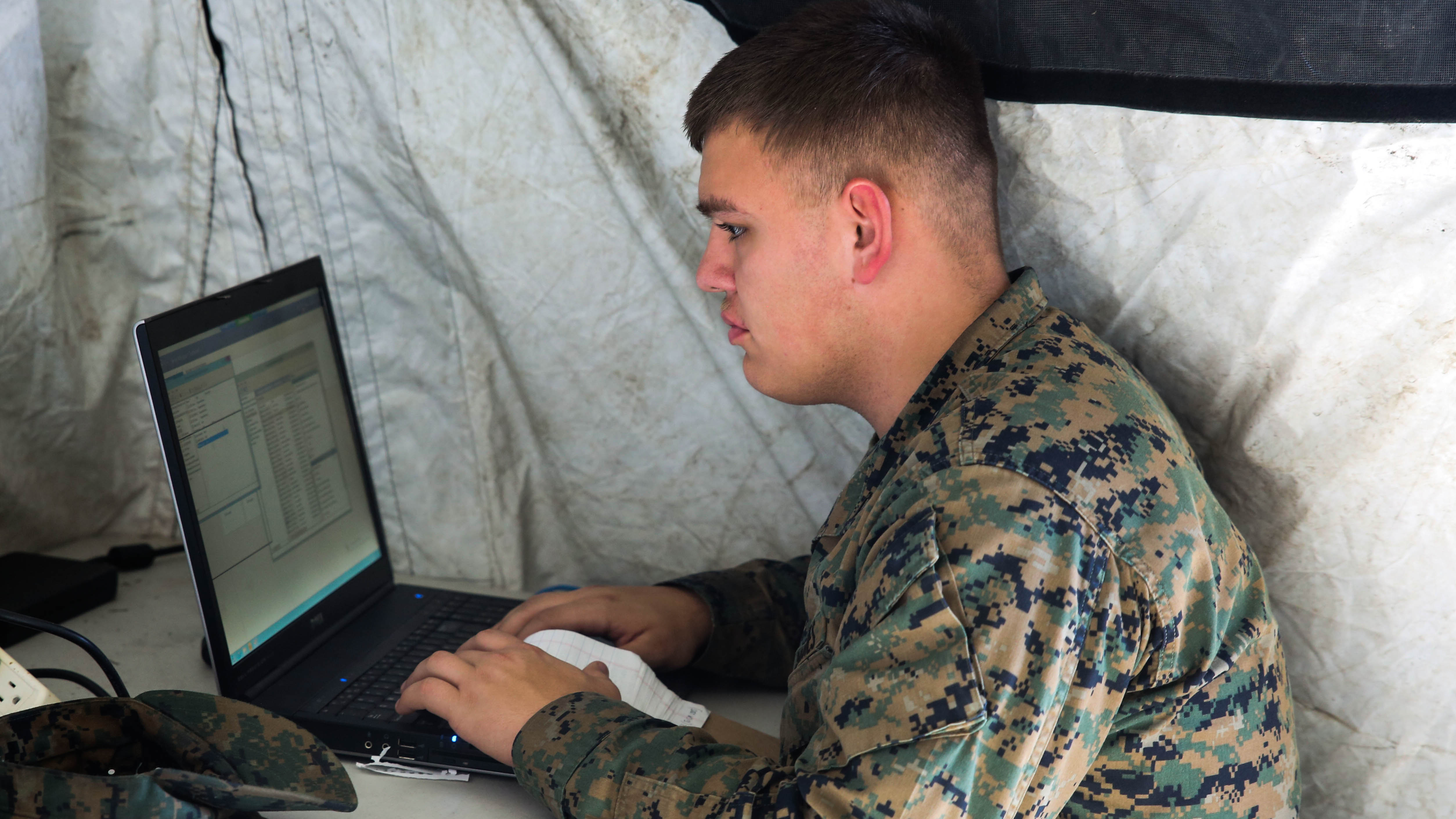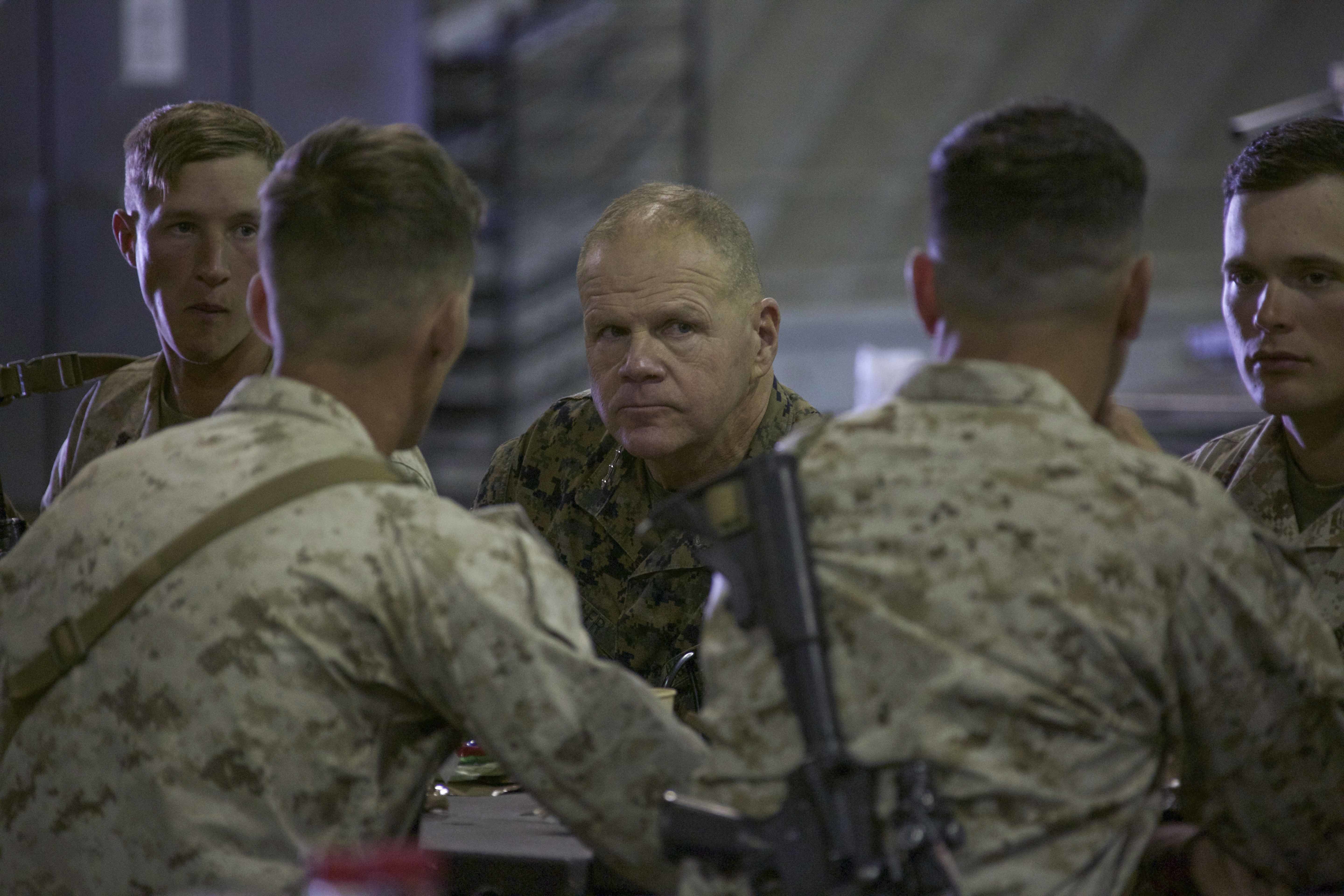
SAN DIEGO, Calif. — The Marine Corps has a long, storied history as a formidable – and young – fighting organization. But will the future force that must lean on highly-skilled, technical warfighters expert in areas like cyberspace, electronic warfare and information warfare require an older, more seasoned force?
The answer, according to the top Marine, might be yes.
That’s an expectation that Gen. Robert Neller sees as a likely necessity as the Marine Corps structures to meet the growing cyber threats by peer competitors and staffed with enough personnel with the skills and know-how to help the service keep that competitive edge.
The Marine Corps is in the midst of a “force modernization” effort geared to shaping the service for the future operating environment that will put even greater demands on the largely conventional fighting force.
“It’s really changing the way we see ourselves as a Marine Corps,” Neller said during a Thursday town-hall discussion with the Navy and Coast Guard service chiefs at WEST 2018, a conference co-hosted by the U.S. Naval Institute and AFCEA. “It’s going to be a Marine Corps that’s a little bit older, a little more experienced, because as much as we love our young Marines… we need a little bit older (force), because it takes longer to learn these skills.”
“The organization is looking as a whole at the way we do business, and it’s going to change our culture,” Neller said.
That culture, however, will remain close to the Marine Corps’ heart and soul. “We still have to retain the [forcible entry] capability,” he said, a reference to the more conventional, amphibious nature that’s still unique among the military services.
“But everybody’s fight is going to be different,” he said, referring to the other services’ future operating concepts.
For Marines, that future force will be more heavily dependent on units skilled and focused on cyber-related threats and cyberspace operations – and likely against enemies and competitors that are just as capable as U.S. Forces. “We are looking at ourselves against these potential threats and how we might compete,” Neller said.
The Marine Corps is continuing to expand its cyber capabilities, including growing a force of cyber Marines that will eventually have the capability and capacity to keep up with the ever-changing threat environment and maintain cyber, if not, combat superiority. That means more Marines who have the foundational skills, instruction and training to fill key billets with deployed operational forces and across the service.

“A lot of the capabilities they’re going to need are going to take more training. It’s going to be a longer block of time to grow these Marines, and we’re going to have to keep them longer,” Neller told USNI News after the talk.
“We’re trying to figure out how to age the force a little bit.”
“One of the force structure things we’re looking at is the Marine Advisory Group. We’ll take the Marine Corps’ Theater Security Cooperation Group and grow it into a Marine Advisory Group,” he said. “We’ll have some junior Marines in there, but you’ll have to be like a staff (noncommissioned officer) or captains and majors to do that. You’ll have a little bit more experience and maturity to deal with a foreign military.”
But the commandant isn’t talking about aging the entire force, so it’s likely that traditional warfighting units such as infantry and aviation – these represent the bulk of the Marine Corps – will remain as today.
“It’s not a lot, but as you look at the force – you’ll have intel analysts and people qualified in cyber – you’re going to have people who are electronic warfare and information operations,” Neller said. “It’s not huge, but you’re going to see a requirement for a little older, a little more experienced Marine.”

“I do think the sophistication of the battlespace (and) the decisions that have to be made, we expect our young Marines to grow up really fast, and there’s so much you can do over time,” he said. “We all feel like we’re a little wiser as we got older, so we have to figure out how to take the young ones and make them grow up faster, and mature fast.”
That may mean that the Marine Corps might “keep people – not a lot of people – in critical places that have been around a little bit longer,” he added. It’s unclear how that would play out with promotions and reenlistments, the latter which might require enticements such as bonuses.
Neller didn’t detail what ranks, billets or military occupational specialties might be revamped in this future force, but service officials are looking broadly at manpower and “talent management.”
The Marine Corps’ recruiting numbers are looking healthy and strong, with delayed entry program seeing backlogs as long as nine months, “but it’s not without a lot of work,” he said. “Our recruiters work really, really hard. People are recruited… They are doing a very good job” to meet the mission. Reenlistments are going strong, with 80 percent billets filled only halfway through the year already, and deploying units are seeing manning levels of 95 to 100 percent, he added.
One area Neller said he’s concerned about with the current force is attrition, particularly cases where Marines are injured or hurt and can’t be deployed or remain in the service. “We’ve got to do a better job of rehabilitating people,” he said, to include looking at how Marines do their training and fitness.
Aging the force, even if in certain areas rather than across the service, could have the side benefit of easing the recruiting burden.
“If we were to age the force and we were to increase retention of Marines…if you keep Marines longer, that means the recruiting mission could be less. So then we can focus on the quality,” he said. But at a time with an improving economy, “in the outside world with opportunity, are enough of our really good Marines going to stick?”

That thinking, he said, is part of the Marine Corps’ ongoing “force modernization” efforts that includes a deep look at what the force of the future should look like and how it should be structured. Defense budgets will be a key driver, if not key influencer, of those decisions. The Marine Corps wants to fund an additional 1,000 Marines with the latest budget appropriation. “We already know where we’re going to put them,” he said, and a mandatory beefed-up cyber force and the new advisory group will represent the bulk of that increase.
“We have to prioritize,” he said.
“Anything we can do with attrition we’re trying to drive it down.”





